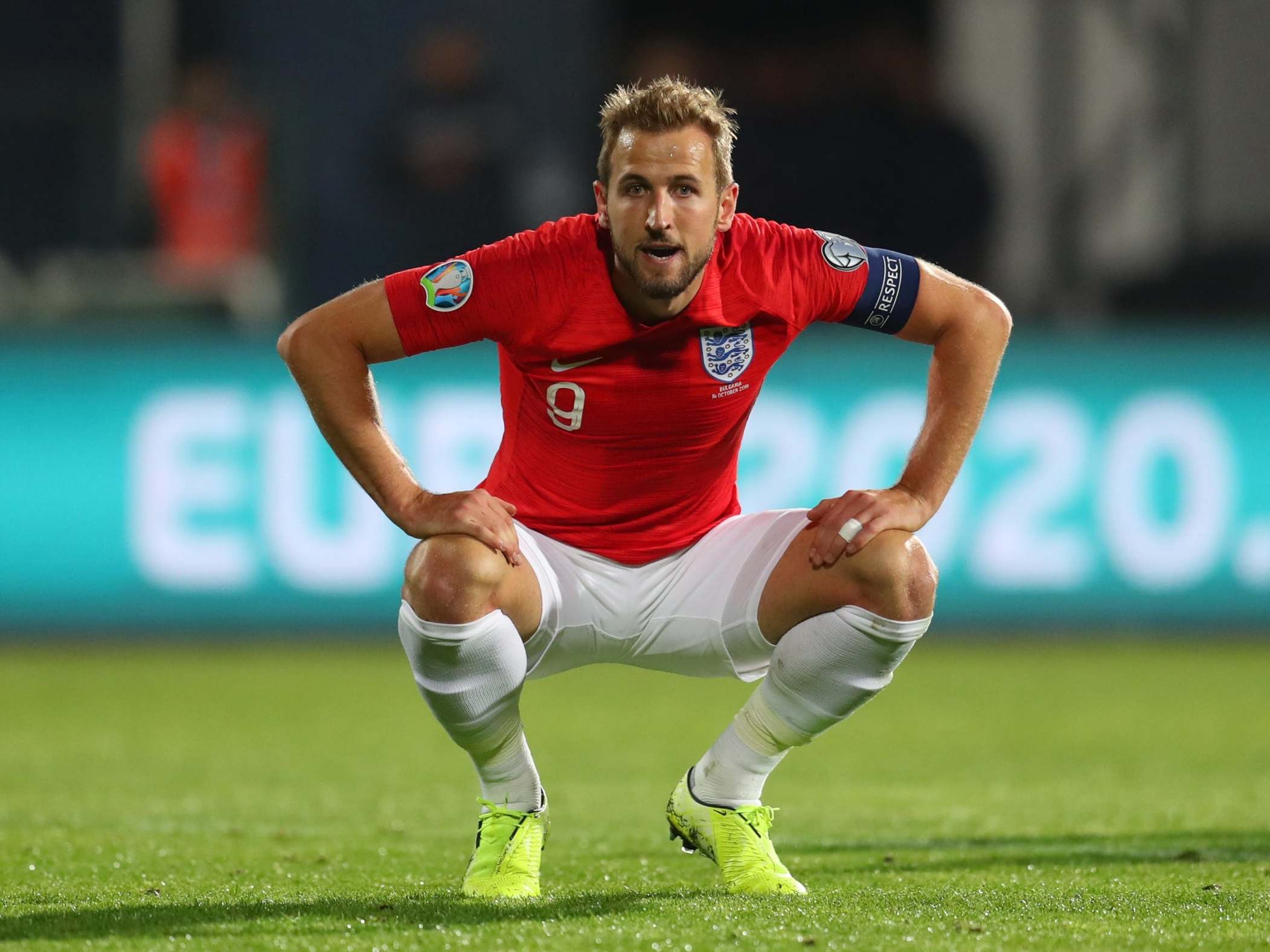Is Harry Kane still England’s best striker or are injuries taking toll on Tottenham star?
Kane has scored 16 in 19 games for club and country but is he the same player of old?

Harry Kane has scored a lot of goals recently. 16 in 19 games for Tottenham Hotspur and England since the start of the season, to be precise. By any standard, let alone the high bar that Kane has set for himself since breaking through five years ago, that is a very good return.
It is in fact Kane’s best scoring start since the 2017-18 campaign, when he hit 17 goals in his first 19 games. Records tumbled that year. Many began to consider Kane as the European game’s leading No 9. Comparisons with Cristiano Ronaldo were drawn. In fact, at the end of 2017, he had outscored Ronaldo by four goals over the calendar year.
A fading memory of that time no doubt led Roy Keane to say Manchester United should sign Kane a few weeks ago. “He’ll score you 30 goals a season blindfolded,” Keane claimed. Actually, Kane fell six short of that at club level last season while in full possession of his senses, but you get Roy’s point.
And Keane is not the only person to still revere Kane as one of the world’s best strikers. Why then, when Kane is scoring goals at a comparable rate to his late 2017 peak, are there faint murmurs of him facing competition for a starting place with England? Why is there a perception he is playing below his peak level? Why is there a growing sense that Kane is, in fact, in decline?
Penalties are one reason. Six of Kane’s 16 goals at the start of this season have come from the spot. That is already as many penalties as he scored in the entirety of his 52-goal 2017-18 campaign, including the three he dispatched on his way to winning the Golden Boot at the 2018 World Cup.
England Euro 2020 predicted squad
Show all 23While an ability to convert penalties is obviously an essential part of any striker’s inventory, it is not an indicator of good form. Judge Kane only on non-penalty goals this season and his tally of five after 11 Premier League appearances is half of Tammy Abraham’s, level with Callum Wilson’s and only one more than Marcus Rashford’s.
Further comparisons reveal he has taken fewer shots than all his fellow England strikers but Wilson. Kane is also shooting from worse positions than his peers and therefore has the lowest expected goals total of the four, according to StatsBomb data. Meanwhile, the idea that he has become a more cerebral, creative player is undermined by weak expected assist figures. He has set up only one goal for Tottenham this season.
Compare this Kane to the Kane of old and the difference is starker still. For every 90 minutes he has played in the league this season, Kane has taken half as many shots as in 2017-18. His expected goals have more than halved too. This decline began last year, when his output fell to pre-2017 levels, and they keep falling.
But just as Kane’s healthy goal record may not be all it seems, there are mitigating circumstances for these less than impressive statistics. It is hard to separate any hint of under-performance from the fact he is playing in a struggling Tottenham side, riven by contractual disputes and caught at a crossroads.
It may be the case that this squad of players under this manager has simply run its course. Unless a rebuild is only deemed possible by selling Kane for big money, he will be an integral part of whatever comes next in north London. Maybe Tottenham supporters have not yet seen the best of him.
But that presumes that Kane is struggling because of a less effective Tottenham, rather than that Tottenham are struggling because of a less effective Kane. The much-cited ankle injuries – five since September 2016 – and Kane’s eagerness to come back early from them – particularly before the World Cup last year – cannot have helped.
Kane is generally more consistent at international level, though it is difficult to draw many conclusions from his performances given the varied standard of opposition. He has eight goals in his last eight games for Gareth Southgate, though managed just one during the Nations League campaign against stronger opposition.
He could be protected from fluctuations in form internationally by the fact that, in the early years of the 21st century at least, it has proved difficult to lose your place in England’s starting line-up once you have become the full-time captain, even once you pass the honour on to somebody else.
David Beckham was swept away by new broom Steve McClaren in 2006, only to be sheepishly recalled. John Terry was stripped of the armband twice yet retired in September 2012 having played every minute of that summer’s European Championship. Wayne Rooney’s waning gifts were indulged, then he retired, then he came back for one game only.
Kane remains a long, long way from being accommodated by any England manager. He is 26-years-old. His ‘underwhelming’ statistics are still comfortably international standard. Abraham appears to be his closest competitor for a starting place up front at next summer’s European Championship but still has much to prove.
For now, only real concern regarding Kane is whether he can ever again reach that 2017 rate of shooting and scoring – that Ronaldo-reincarnate level – when the question was not whether he was England’s best striker, but the world’s.
Subscribe to Independent Premium to bookmark this article
Want to bookmark your favourite articles and stories to read or reference later? Start your Independent Premium subscription today.

Join our commenting forum
Join thought-provoking conversations, follow other Independent readers and see their replies